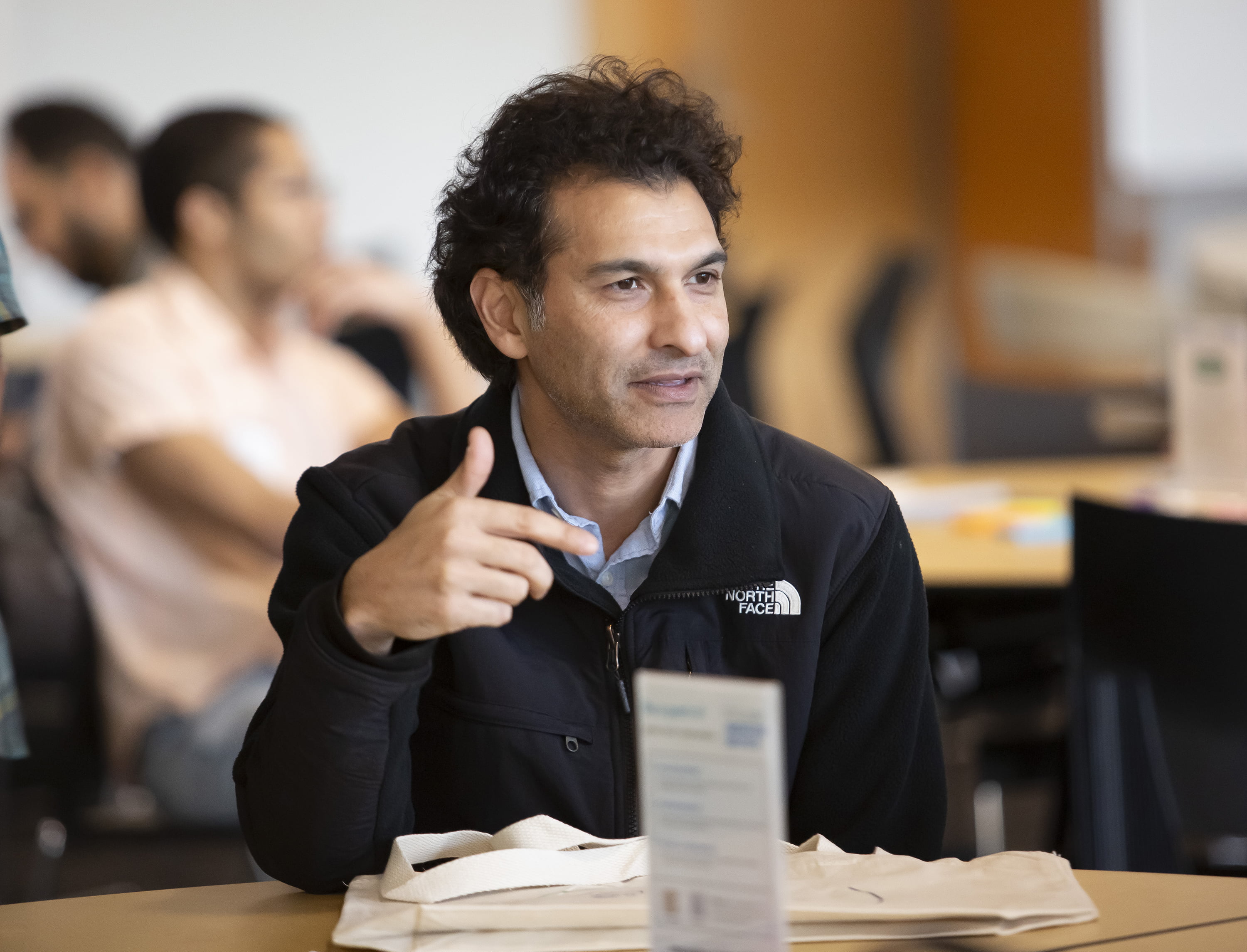Noshir Pesika's meniscal implant prototype, supported by Tulane's Provost's Proof of Concept Fund, may change the future of knee injury treatments

Noshir Pesika Ph.D at the Tulane Innovation Institute Startup Sprint
Whether jogging along uneven sidewalks while training for the Crescent City Classic, lunging for a Muses shoe during Mardi Gras, or jumping out of their seats to the sounds of Trombone Shorty during the final set at Jazz Fest, New Orleanians engage in unique activities that often put a strain on their knees. People in other parts of the world also face common daily challenges that can damage the semilunar cartilage in the knee, such as climbing stairs or lifting heavy weights. These activities can all lead to meniscus tears. Consequently, over one million meniscal tears are reported annually in the United States alone, making it the most common type of knee injury. A researcher and his lab at the Tulane University School of Science and Engineering are making strides in addressing this health issue by developing an artificial meniscal implant that can be used in a less invasive way than total joint replacement but offers a more long-term solution than injection-based treatments.
Noshir Pesika's Ph.D pursuit to develop a new type of knee implant began in 2015 with an initial study funded by the National Science Foundation (NSF). He saw an opportunity to design an artificial meniscus implant that mimics natural cartilage aimed at young patients who wish to remain active while lowering their risk of developing osteoarthritis. His research demonstrated that incorporating lubricant-housing pores into a biocompatible elastic polymer could replicate the lubrication mechanism found in natural cartilage.
"After the initial study, we encountered difficulties obtaining extra federal funding for prototyping," Pesika noted. "Five years later, in 2020, we secured additional NSF funding to support customer discovery efforts."
In 2023, Pesika became one of the first recipients of the $50,000 grant from the Tulane Innovation Institute Provost’s Proof of Concept (PPOC) Fund. This program, established in collaboration with Provost Robin Forman, aims to support early-stage research with the potential for societal impact. "This grant allowed us to refine our fabrication techniques and identify new materials to enhance the performance of our prototype," Pesika noted. “An artificial knee meniscal implant like this one has the potential to significantly influence the healthcare sector and assist patients who currently rely on frequent gel injections for pain relief associated with injury. This technology could restore full knee functionality and reduce the likelihood of future complications.”
Pesika's lab at Tulane University specializes in surface and colloidal science, focusing on surface modification, self-assembly, micro- and nanofabrication, and tribology. The team draws extensively from biomimicry and bio-inspiration to tackle energy, health, and materials science challenges. A prime example of this approach is the development of bioengineered materials that replicate the natural structure and function of the meniscus.
Pesika is now hoping to establish a startup to advance this technology further. He also believes this innovation can apply to other uses that could benefit from a surface with high lubricity, such as contact lenses, cartilage replacements in other joints, and meniscal implants for cats and dogs.
When asked what advice he would give fellow researchers looking to commercialize their discoveries or ideas, Pesika stated, "Create a working prototype of your technology. Have something tangible to present to an audience. It’s one thing to have an idea, but it's always more effective to have a working prototype, regardless of how rudimentary or inefficient it might be in the early stages."
Since 2023, the Provost's Proof of Concept (PPOC) Fund has awarded more than $700,000 to 14 projects across various disciplines. This funding supports initiatives that often have difficulty transitioning from the discovery phase to real-world applications. As demonstrated by Pesika's work, Tulane’s Provost’s Proof of Concept Fund can help develop innovative ideas at the university into practical solutions. To learn more about PPOC, click here.
